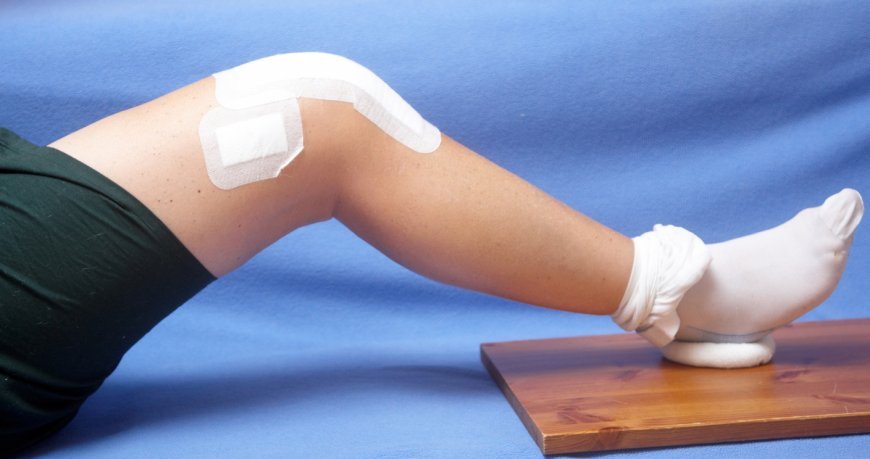Top 5 Mistakes After Knee Replacement Surgery
Learn about the top five mistakes to avoid after knee replacement surgery. Discover the importance of post-surgery rehabilitation, how to avoid overexertion, manage pain and swelling, follow medication and treatment plans, and attend follow-up appointments for a successful recovery. Don't miss out on these essential tips!

Undergoing knee replacement surgery can be a life-changing experience, helping individuals regain mobility and reduce knee pain. However, it's crucial to remember that the journey to full recovery doesn't end with the surgical procedure. After knee replacement surgery, there are common mistakes that patients may unknowingly make, which can hinder their recovery progress. In this article, we will discuss the top five mistakes to avoid after knee replacement surgery and provide guidance on ensuring a successful recovery.
Mistake #1: Neglecting Post-Surgery Rehabilitation
One of the patients' most significant mistakes is neglecting the importance of post-surgery rehabilitation. After knee replacement, rehabilitation plays a crucial role in restoring strength, flexibility, and function to the knee.
It is essential to follow the prescribed exercise program, which may include stretching, strengthening exercises, and mobility drills. Neglecting or skipping rehabilitation sessions can slow the recovery process and limit the overall outcome of the surgery.
Mistake #2: Overexerting Yourself Too Soon
While it's natural to feel motivated to resume your normal activities after knee replacement surgery, it's important not to overexert yourself too soon.
Pushing yourself too hard or engaging in high-impact activities too early can strain your newly replaced knee joint, potentially leading to complications. It's vital to gradually increase your activity level as your healthcare provider advises, allowing your body to heal and adapt to the new joint.
Mistake #3: Ignoring Pain or Swelling
Pain and swelling are common after knee replacement surgery, but it's crucial not to ignore them. While discomfort is expected during the initial recovery period, persistent or worsening pain and swelling may indicate a problem. Communicating any concerns or unusual symptoms to your healthcare provider is important. Ignoring these signs may delay proper treatment and affect the success of your knee replacement.
Mistake #4: Not Following Medication and Treatment Plan
Following the prescribed medication and treatment plan is essential for a successful recovery. Patients may make the mistake of skipping or altering their medication schedule, which can hinder pain management and impede healing.
It's crucial to take medications as prescribed and communicate any concerns or side effects to your healthcare provider. Additionally, following the recommended treatment plan, such as physical therapy sessions or assistive device usage, is important for optimal recovery.
Mistake #5: Skipping Follow-Up Appointments
After knee replacement surgery, follow-up appointments with your surgeon are crucial. These appointments allow your healthcare provider to monitor your progress, address any concerns, and make necessary adjustments to your recovery plan.
Skipping or postponing these appointments can result in missed opportunities for early detection of complications or adjustments to your treatment. Attending all scheduled follow-up appointments is important to ensure a smooth and successful recovery.
Conclusion
Recovering from knee replacement surgery requires dedication, patience, and avoiding common mistakes that can hinder your progress. By following post-surgery rehabilitation, avoiding overexertion, paying attention to pain and swelling, adhering to medication and treatment plans, and attending follow-up appointments, you can maximize the benefits of your knee replacement surgery.
Remember, each person's recovery journey is unique, so it's essential to consult with your healthcare provider for personalized guidance and support.
FAQs
1. How long does the recovery process after knee replacement surgery take?
The recovery process can vary from person to person. Still, typically, it takes several weeks to months to regain full function and mobility. Following your healthcare provider's instructions and being patient with the healing process is important.
2. Can I resume physical activities after knee replacement surgery?
Yes, you can resume physical activities after knee replacement surgery. However, starting gradually and following your healthcare provider's guidelines is crucial to avoid overexertion and potential complications.
3. Should I take any long-term precautions after knee replacement surgery?
While knee replacement surgery can provide long-term benefits, it's important to maintain a healthy lifestyle, avoid excessive weight gain, and engage in regular exercise to support the longevity of your new knee joint.
4. Can I drive after knee replacement surgery?
Driving after knee replacement surgery should be discussed with your surgeon. In general, waiting until you have regained sufficient strength, mobility, and reflexes is advisable before resuming driving.
5. When should I seek medical attention after knee replacement surgery?
Suppose you experience severe pain, sudden swelling, warmth, redness, or any other concerning symptoms. In that case, it's important to seek immediate medical attention. Your healthcare provider can evaluate your condition and provide appropriate guidance.









